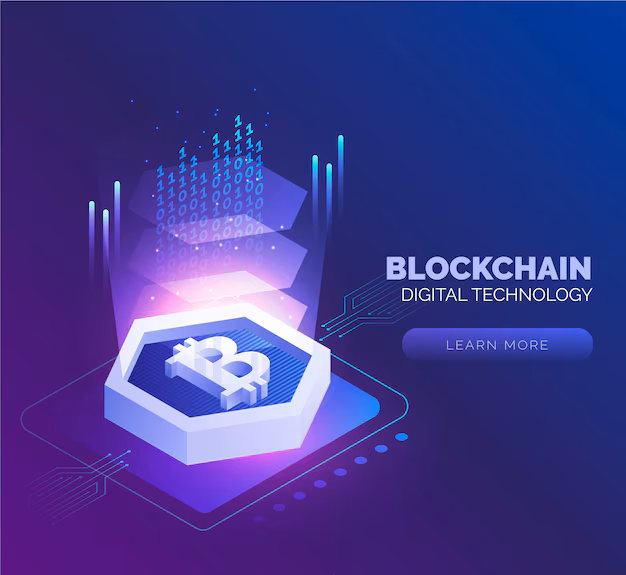Address
Work Hours
Monday to Friday: 9:00 AM - 6:00 PM
Address
Work Hours
Monday to Friday: 9:00 AM - 6:00 PM
Blockchain technology has emerged as a disruptive force, revolutionizing multiple industries, including finance, healthcare, supply chain management, and even the job market. As blockchain adoption increases, it creates new job opportunities, changes traditional recruitment processes, and enhances security and transparency in employment. Additionally, blockchain fosters innovation in decentralized finance (DeFi), tokenization of assets, and Web3 technologies, which further expand career possibilities. Companies are beginning to explore blockchain’s role in automating administrative tasks, reducing hiring biases through decentralized applications, and improving payroll efficiency with cryptocurrency-based transactions. As blockchain continues to evolve, it will not only redefine how businesses operate but also reshape professional skill sets and workforce demands.

In this blog, we explore how blockchain is shaping the future job market and what professionals should expect in a decentralized digital economy.
With the emergence of blockchain, there is a growing need for professionals in different positions. Professions like blockchain developers, smart contract auditors, blockchain security experts, and decentralized application (DApp) developers are highly in demand. Companies and startups spending money on blockchain technology need professionals who have knowledge of cryptographic concepts, distributed ledger technology, and blockchain protocols.
Furthermore, the application of blockchain across sectors such as finance, healthcare, and logistics has resulted in the emergence of new hybrid careers. For instance, cryptocurrency and blockchain-based investment models financial analysts are in growing demand. Likewise, legal experts who specialize in blockchain compliance and regulation help to formulate policies for decentralized networks. These career paths point to the revolutionary influence of blockchain on global employment landscapes.
Hiring processes in the past have usually included middlemen like recruitment agencies, job websites, and human resource departments. Blockchain is decentralizing recruitment by enabling direct relationships between employers and employees. Blockchain-based smart contracts enable automatic execution of hiring contracts once specific conditions are fulfilled, eliminating paperwork and administrative expenses.
Additionally, blockchain facilitates the development of credible and tamper-proof digital resumes held in a decentralized ledger. The employer can verify in real-time the qualifications, work experience, and certifications of a candidate without the need for third-party verification. This eliminates fake claims, accelerates recruitment processes, and promotes transparency during recruitment. Consequently, companies can facilitate easier hiring while candidates enjoy a reliable and unchangeable record of their professional success.
Employee fraud, such as fraudulent resumes and identity theft, poses an increasingly big challenge for global companies. Blockchain technology delivers a safe remedy in the form of an impenetrable and distributed credentials record. By taking advantage of blockchain-enabled digital identity technologies, applicants are able to store securely their work history and personal details so employers may instantaneously validate their past.
For instance, schools and certification agencies can provide blockchain-based credentials that cannot be tampered with or replicated. This promotes trust between employees and employers since only qualified individuals get hired. Blockchain-based authentication also minimizes the threats posed by data breaches and hacking, protecting sensitive employee data from cyber attacks.
The gig economy is growing rapidly with increasing professionals participating in remote and freelance work. Blockchain technology adds to gig work by supporting smart contracts that facilitate automatic processing of payments, contract enforcement, and fair payment.
Smart contracts do away with the intermediaries like banks or payment processors, thus lowering transaction costs and time. Freelancers receive payment immediately upon the task completion, according to the terms that are programmed into the smart contract. This does not only provide transparency but also creates trust between freelancers and clients.
In addition, blockchain can offer freelancers a decentralized reputation system wherein previous clients leave authenticated reviews and ratings. This builds a better and fraud-free gig economy that enables professionals to establish trust-based portfolios that make their career trajectories better.
With blockchain technology revolutionizing job markets, it becomes essential for professionals to acquire the necessary skills in order to remain competitive. Blockchain courses and certification programs are becoming increasingly popular, with specialized training in blockchain development, cryptography, decentralized finance (DeFi), among others.
Universities, online course sites, and independent institutions are now providing blockchain courses for training so that individuals can reskill and move to jobs in blockchain careers. Certificates like Certified Blockchain Developer (CBD) or Certified Ethereum Developer (CED) are being recognized by employers.
Also, companies are putting money into employee training programs that teach workers about blockchain adoption in different sectors. With the developing technology, lifelong learning and upskilling will be necessary for professionals to be able to adapt to the job market fueled by blockchain.
Blockchain is revolutionizing job markets by opening up new career paths, improving security, decentralizing the hiring process, and transforming the gig economy. As companies increasingly use blockchain, professionals will need to upskill and get accustomed to this changing environment. If you are a developer, recruiter, freelancer, or financial analyst, it is crucial to learn about blockchain technology in order to thrive in the future job market.
Adopting blockchain-based innovations today will guarantee a competitive advantage in the decentralized economy of the future. The question is—are you prepared for the blockchain revolution in the labor market?
NOTE:- For more JOB OPPORTUNITIES visit Daily Liv India.
Images sourced from Freepik.